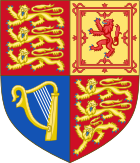Exeat
The Latin word exeat ("he/she may leave") is most commonly used to describe a period of absence from a centre of learning.[1]
In Britain
Exeat is used in Britain to describe weekend leave of absence from a boarding school.[2]
It is also used at certain colleges to define a required note to take absence from school -- such as for entire days, parts of a day, for appointments, interviews, open days and other fixtures.[3] Students at Oxford University,[4] Cambridge University, and other British universities have also been required to obtain such permission to leave college overnight.[5]
In the Commonwealth
A similar method of exeat notifications is used in many Commonwealth schools.[6] It is common for Australian schools to call the long weekends of leave enjoyed by boarders an exeat weekend. This results in the boarding house closing for the weekend. This typically involves an extra day of leave associated with a public holiday to create a long weekend.[7]
In New Zealand or South Africa, an exeat may refer to a period of day leave from a school. This is used as a way to record the coming and going of students from the campus.[8]
See also
| Look up exeat in Wiktionary, the free dictionary. |
References
- Exeat — definition from the Free Online Dictionary.
- Boarding in the UK, The Hobsons UK Boarding Schools Guide.
- Exeat & Leave Weekend Request Forms, Charterhouse School.
- "Regulations For Junior Members" (PDF). Saint Peter's College, Oxford. August 2005. Archived from the original (PDF) on February 7, 2012. Retrieved 2012-05-07.
- "Glossary of Cambridge jargon". Queens.cam.ac.uk. Retrieved 2012-05-07.
- School Rules Archived 2009-09-13 at the Wayback Machine, Newington College.
- Parent Handbook, p. 13 Archived 2007-09-03 at the Wayback Machine, Broome Residential College.
- Wentworth College – Prospectus – Contact Procedures Archived September 12, 2007, at the Wayback Machine
